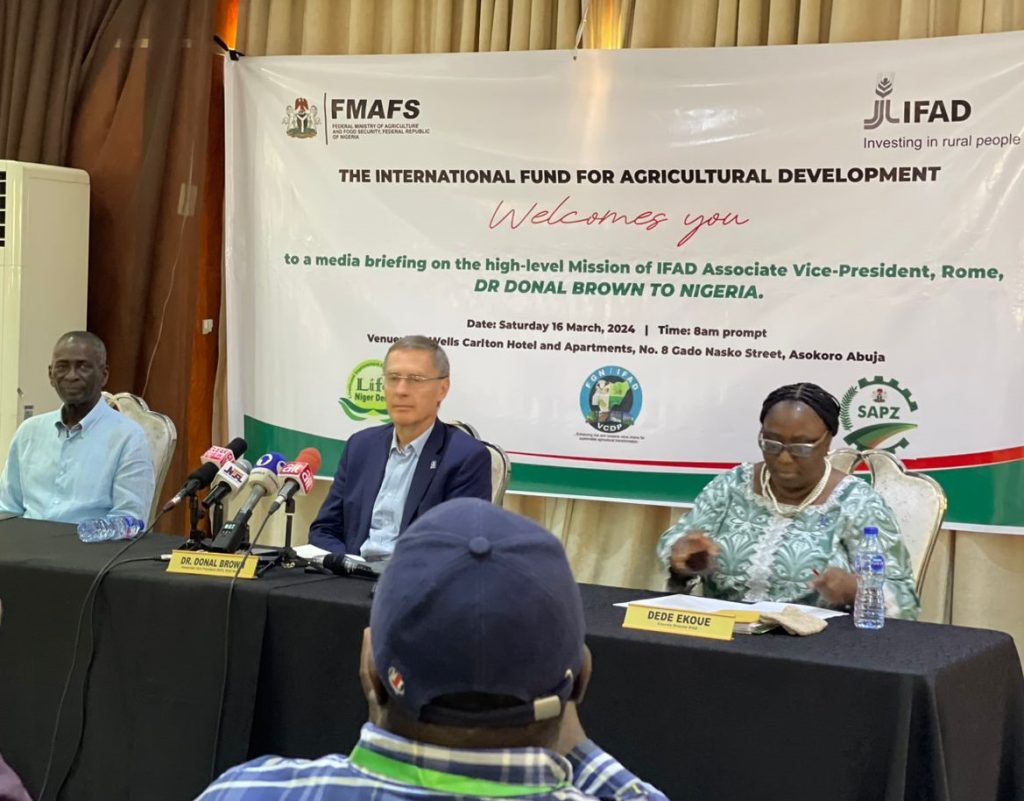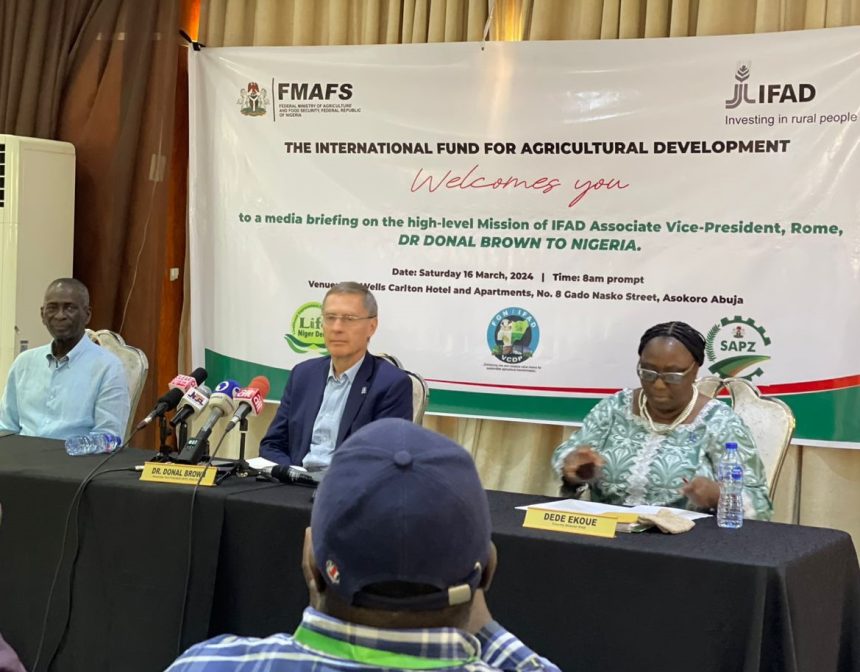
The Country Director of the International Fund for Agricultural Development (IFAD), Mrs. Dede Ekoue, has discussed the significant achievements and ongoing challenges within Nigeria’s agricultural sector. She credited the improvements in productivity, production, and income to the dedication of local communities and the support provided by state governments.
During an interview with the press on Saturday, Mrs. Ekoue shed light on both the progress and obstacles encountered in Nigeria’s agricultural industry. She particularly emphasized advancements in productivity, production, and income, applauding the positive changes observed in these areas.
Mrs. Ekoue attributed these successes to the unwavering commitment of local communities, especially farmers’ groups, who have increasingly taken charge of agricultural programs. Additionally, she highlighted the pivotal role played by state governments in bolstering these initiatives and amplifying their impact.
She noted that endeavors aimed at enhancing farmers’ resilience to climate change and promoting food security have yielded promising outcomes. Mrs. Ekoue echoed the sentiments expressed by the Vice President, emphasizing the strides made in fostering inclusivity, particularly among women, youth, and individuals with disabilities.
Underlining the importance of learning from past experiences, the Country Director mentioned collaborations with IFAD’s SAPz program, facilitating knowledge exchange among farmer leaders. Furthermore, she discussed the expansion of the youth in agriculture program in partnership with the Dubai government, illustrating a commitment to empowering young farmers and fostering agricultural innovation.
Despite the progress made, challenges persist, particularly in building resilience to various shocks such as climate change and economic disruptions. Internally, efforts are underway to enhance implementation efficiency and optimize operations to better serve beneficiaries.
Mrs. Ekoue reiterated IFAD’s unwavering commitment to driving positive change in Nigeria’s agricultural sector. Through collaboration, innovation, and strategic investments, the country is poised to further advance sustainable agriculture and enhance livelihoods nationwide.




